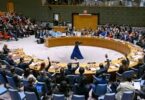Syrian leader Bashar al-Assad has paid a daylong official visit to Iran and met with the country’s top leadership, including President Ebrahim Raisi and Supreme Leader, Ayatollah Ali Khamenei. During the meeting with President Bashar Al-Assad, President Ebrahim Raisi said that Iran is in favor of strengthening strategic ties with Syria through the development of trade and economic cooperation. According to him, Iran’s priority is to expand bilateral partnerships and will continue to provide all kinds of support to Syria in the backdrop of a marked deterioration in the economic situation in the world. The Syrian leader called Iran a true friend and partner and noted that a close interaction between Damascus and Tehran serves the interests of Iran and Syria as well as the people of the entire region. Iran’s Supreme leader Ali Khamenei stressed the need for more active efforts than before to strengthen relations between the two countries.
Iran and Bashar Al-Assad’s regime in Syria are the two closest allies and strategic partners in the Middle East region. The two countries have a lot in common including animosity toward the United States and Israel, close ties with Russia, affiliation with the Palestinian cause, nexus with Lebanese Hezbollah, and a strained relationship with most of the Gulf States including Saudi Arabia. Former Syrian President Hafez Al-Assad supported the Iranian revolutionary government against Iraq in the 1980s, while the bilateral relations between Syria and Iran were further cemented during the Syrian civil war in the post-2011 era when the Iranian Islamic Revolutionary Guard Corps (IRGC) successfully expanded its presence as well as influence in Syria through the creation of Shitti militias to fight against the pro-west and anti-Assad rebel forces in the country. Over the past decade, Iranian Intelligence not only trained the Syrian National Defense Forces (NDF) but also armed the local militant groups in support of the Syrian government besides the recruitment of Shia fighters from Afghanistan, Pakistan, and Iraq for the protection of Shia religious shrines and to fight against ISIS in Syria.
After regaining control in most parts of the country, Assad’s regime had revitalized its diplomatic and trade relations with regional Arab states including UAE, Bahrain, and Jordan, while GCC nations also resumed their relations with Damascus, believing that Assad’s regime may return to the zone of influence of the Arab Nationalism and move away from Iran. However, the recent surprise visit of the Syrian leader to Iran has not only trashed all hopes of Arab leaders regarding Assad’s rapprochement with Arab countries but also practically laid down the foundations of a strategic partnership between Damascus and Tehran. According to reports, the leadership of both nations had discussed multifaceted relationships, and regional political and security issues and reiterated their resolve to further strengthen their bilateral cooperation in all fields including trade and economy, political and security matters, and counterterrorism.
The troika of the Assad regime, Iran, and Russia had won the battle in Syria through the successful repulsion of anti-Assad rebel forces as well as Islamic State militants in recent years. Presently, Iran is consolidating its influence in Syria by providing massive economic, and financial assistance, business contracts, and military collaboration hence the dream of Gulf Nations for the separation of the Iran-Syria alliance remained unsatisfied so far.






